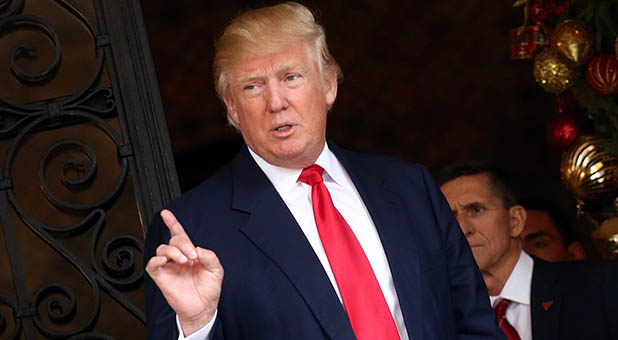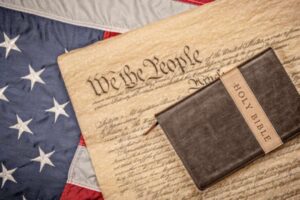As someone who served as a Republican delegate from Pennsylvania during the 2016 election, and as a professor of political science and presidential history, I have some fresh political-historical observations untangled from partisan gossip about Donald Trump and his future presidency. It seems likely that Donald Trump, based on his policy announcements for his first 100 days, is very much in line with Whig presidents of the 1800s.
Many of Trump’s proposed first actions are plans reducing and restricting presidential prerogatives during Barack Obama’s presidency—very similar to Whig proposals responding to President Andrew Jackson. For example, Trump will examine trade policies such as the Trans-Pacific Partnership, re-examine America’s aggressive and overreaching foreign policy, and scale back restrictive environmental regulations that are disproportionately aimed at the coal and steel industries. He will implement a “Trump” rule that for every new regulation on business, two previous regulations must be repealed. He will fight against crony lobbying in Washington, offer legislation for Congressional term limits and begin an audit of many departments.
Some of Trump’s big domestic plans include infrastructure legislation to rebuild America. He also endorses a broader collaboration between private business and government, promoting rapid economic growth and a resurgence of industrial growth in the United States. He will continue demanding a modern competitive economy and will reform the American tax code. Further, he will keep open an option for tariffs to protect the American workforce and industrial growth.
If these ideas sound familiar to you, then you could have been a Whig sympathizer in the 1800s. The Whig party was founded in the early- to mid-1800s following the tradition of the British Whig Party. The party’s main goals were to reduce the powers of the presidency, namely the egregious actions of Andrew Jackson. The party favored economic protectionism, restraining the size of the federal government, and scaling back presidential decrees. These policy principles were embodied in Henry Clay’s “American system,” which was the heart of Whig policy ideas and had three main goals: 1. tariffs to protect and promote American industry; 2. a healthy banking system to promote commerce; 3. federal dollars for American infrastructure. Further, the Whigs favored a foreign policy that placed American interests first and scaled back American entanglements abroad.
The very first Whig president was William Harrison, who died only 30 days into his presidency. His vice president was John Tyler, who was doubted as a Whig. Tyler would cautiously pursue Whig policies, but what is interesting about the first Whig administration is the combination of an ardent Whig with a pragmatist. This duo is similar in inversion to Trump and Mike Pence. Pence is clearly a “principled” conservative Republican (an ideologue) but Trump is much more a pragmatic Whig (reformer). As the policy preferences indicate, Trump is more in line with the Whig party than that of the modern Republican Party.
The second elected Whig president was Zachary Taylor, a former American general famous for his bravery and successes in the American-Mexican war. He was not a politician and never held any office before his election to the presidency. The Whig party, a party of reformers, favored outsiders to the office. Of course, Trump is the outsider. Taylor’s presidency was short, but a famous Taylor quote reveals a further similarity between Trump and the Whigs. Taylor said about his chances of becoming president: “The idea that I should become president seems to me too visionary to require a serious answer. It has never entered my head, nor is it likely to enter the head of any other person.”
Trump is surely unaware of his support for the Whig platform but in principle, he and the Whigs share a great deal in common. Trump, just like the Whigs, wants broad reform of the federal government, reduction in regulations, a strong-competitive economy, infrastructure legislation to modernize America, economic protectionism and an awareness of the tyranny of power in Washington. Maybe the best evidence of the shared Trump-Whig paradigm is Speaker Clay’s support of the American system: “Are we doomed to behold our industry to languish and decay yet more and more? … But there is a remedy and that remedy consists in modifying our foreign policy and in adopting a genuine American System.”
Behold the new Whig president, Donald Trump. {eoa}
Dr. Justin DePlato is an assistant professor of political science at Robert Morris University. His expertise is the American presidency, constitutionalism and the American founders. His latest book is American Democracy: Founders, Presidents and Enlightened Philosophers. His other books include American Presidential Power and The War on Terror: Does the Constitution Matter? and The Cavalier Presidency: Executive Power and Prerogative in Times of Crisis.
This article was originally published at VisionAndValues.org. Used with permission.
See an error in this article?
To contact us or to submit an article




















